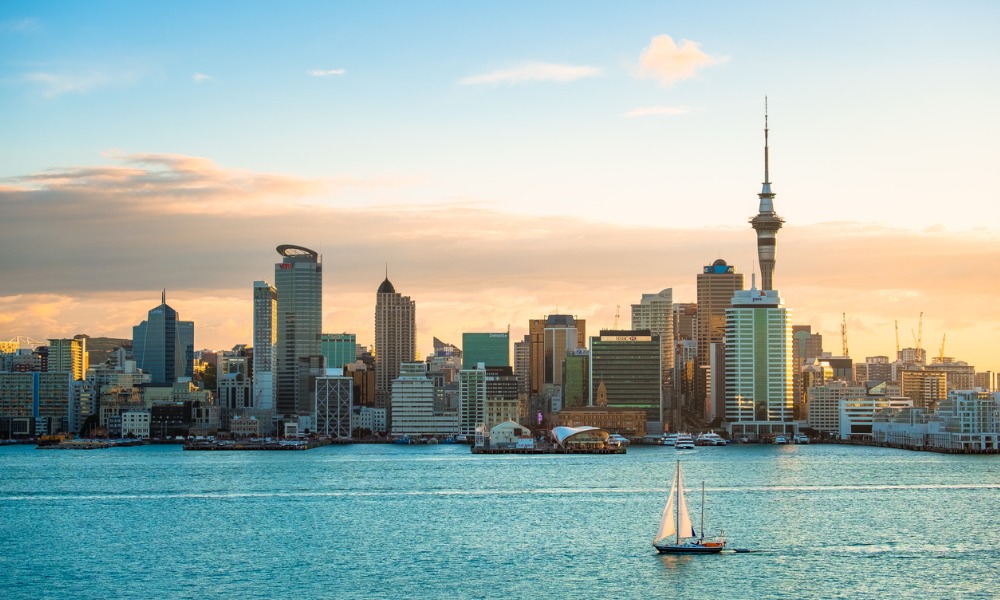The city risks sliding down the global city success rankings, report says

Auckland’s performance was not up to par in terms of productivity, commitment to reducing emissions, and the quality of its cultural offerings, according to a UK-based urban intelligence firm’s new report, which compared the city to overseas rivals.
The Business of Cities compared Auckland with nine other cities with key similarities: Brisbane, Fukuoka, Tel Aviv, Helsinki, Copenhagen, Dublin, Vancouver, and the US cities of Austin and Portland.
The State of City report, commissioned by The Committee for Auckland, found that residents were pleased with the quality of their neighbourhood environments, but the city risked losing the opportunity to be regarded as “forward-thinking and well-prepared” on climate action, Stuff reported.
The study highlighted economic weaknesses that have been the focus of initiatives as far back as 2000, but according to the committee, the key backers have been assembled to make progress.
“Some of those [10 highlighted] areas are definitely slower moving, particularly climate impact, but in the innovation space, I think progress could happen more quickly,” said Mark Thomas, Committee for Auckland director.
In simple terms, the report said the work “focuses on how prepared Tāmaki Makaurau is, for the future of jobs, urban lifestyle, and climate change.”
One of the worst impacted by the COVID-19 pandemic, with longer lockdowns and significantly closed borders creating long-term challenges to the city’s growth and sustainability, Auckland needed “a more innovative and sustainable growth model” to ensure its metropolitan centres are sufficiently vibrant, the report said.
Auckland rated slightly below average in employment opportunities for locals and ranked sixth for jobs being created by foreign direct investment. When it came to productivity, it placed last among its peers, the same for housing affordability, and ranked third lowest for locals’ views on being able to land fulfilling jobs.
Auckland placed third lowest for having an “innovation ecosystem.” which was the relationships between research and commerce and being able to expand innovation, including the number of startup ventures, Stuff reported.
Within that, Auckland placed 123rd out of 200 cities for spending on research and development. And when compared to Melbourne, spent less than half on early-stage funding of ventures.
“We have the smallest number of people who have graduated from a top-100 university in the world, and we have the highest number of graduates leaving,” said Thomas.
The findings came as Tātaki Auckland Unlimited, the council’s economic and culture agency, started its financial year with a 30% reduction in ratepayer funding – that’s $34.5 million less – and a direction to “focus less” on economic development.
Although Auckland rated highly as being attractive to tourists, the report said it did not “develop or express the cultural magnetism” to convert that into immigration, business creators, or advocates.
And while the city scored well for residents’ happiness about their neighbourhood environments, “competitive risks” included that Auckland might become more dependent on cars while other cities embrace alternatives.
Compared to Auckland, other cities’ climate and sustainability policies were found to be “more ambitious.” Not only was Auckland in the bottom half of cities on commitment to reducing emissions, it also placed last for active and public transport uptake.
Thomas said the report’s ambitions had the government’s backing as well as Tātaki Auckland Unlimited and the private sector, and he hoped the disappointments of past efforts would be avoided.
“When these things come out, most people say they’re on board,” he said. “Then – by their actions – they end up not being on board and end up innocently pursuing their [own] agendas or priorities.”
Tim Moonen, the managing director of the firm which authored the report, said Auckland should select the areas it wanted to work on.
“You can work on 100 things, but the effect will be diluted. Pick one or two – you’re much more likely to see progress,” Moonen told Stuff.
Use the comment section below to tell us how you felt about this.



